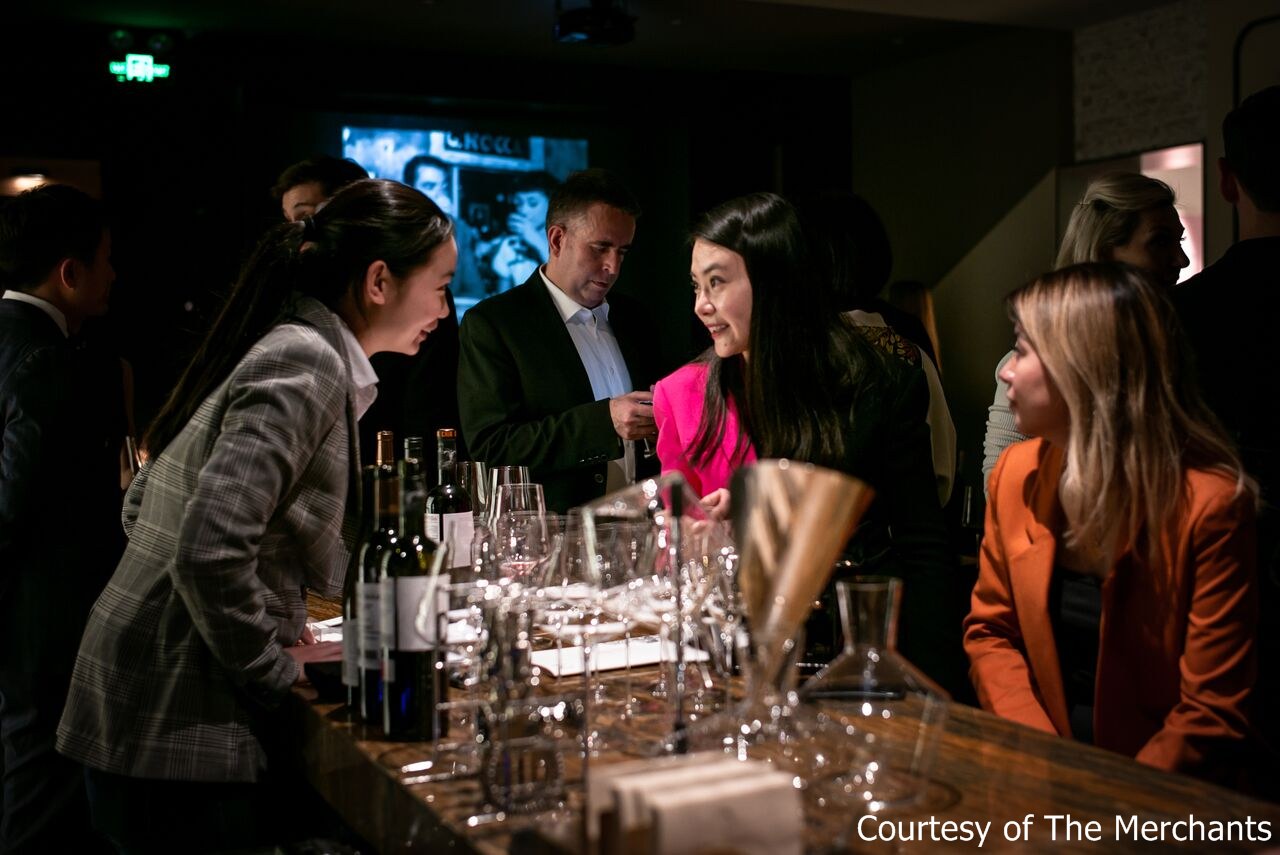By Jim Boyce | The Merchants, a wine bar, cafe and gallery space near the National Art Museum in Beijing, opened late last year and offers intriguing tasting events, eclectic by-the-glass options from Opus One to natural wine from Ningxia, and creative food menus.
I interviewed founder Isabella Ko for an upcoming story in Meininger’s Wine Business International. As is often the case with print media, I could only use a small portion of the comments so I’ll post bonus excerpts here. I’ve been to The Merchants four times and will cover those visits with a separate post.
Why The Merchants opened in Beijing and not Shanghai or Guangzhou:
“We live here, we know this city, and we have a business base from being wine merchants here,” says Ko.
“I always think the most successful and scale-able lifestyle businesses will be started in any other city than Shanghai. Shanghai is the most mature market for food and beverage, mostly because it is the most international. No matter how niche your product, it will have enough of an audience to support it.”
“However, a lot of food and beverage businesses that succeed in Shanghai cannot be opened successfully elsewhere in mainland China. Because the market in Shanghai only represents the top 5 to 10 percent of consumers, but not the rest of the country.”
“A good lifestyle business should temper itself with the mass market first in other cities, and it will also succeed in Shanghai.”
“We will open in Shanghai next year after Beijing is more settled.”
The consumer focus of The Merchants:
“We target the young crowd of Chinese millennials who have the ability to consume, who are willing to consume, who value experience. [They] might not save their salary to buy an apartment like the parents–it’s too expensive, anyway–but they might spend 1000 rmb (USD150) trying a one-hour ultimate spa.”
The wine selection:
“We offer a curated short list of 30 to 50 kinds of fine wines and boutique wines by the glass, 80 percent of them are ranked more than 90 points by international critics. Our wine list changes every month, so guests can taste anything from 65 rmb per glass to 1000 rmb per glass, which would enable you to try a great vintage of Lafite or old vintage of Leroy.”
How Beijing and China compare to other places:
“I went to London and I think we are in a very special period of the China wine trade. There you either have trendy wine bars with strong natural wine focus in East London, like Sager and Wilde, or you have prestige wine clubs like 67 Pall Mall, with a super fine wine selection. But they do not overlap. Because the market is very niche.”
“But here in China, it’s a time that we can combine both. For example, Opus One president [David Pearson] came to host master classes for us when we just opened and we also had pioneer natural wine makers from South Africa [Silweris] do a tasting. Since the China market has only been opened up for wine for last 10 to 20 years, there is still a lot to do.”
On establishing a wine bar brand identity:
“For us, it’s all about providing the best possible experience. What exactly are you trying to do? And why?”
“When you think of coffee, you think of “Starbucksâ€, or “Blue Bottleâ€, or many other brands that represent a philosophy and style. But when you think of wine, where to drink it? There isn’t a brand that defines “wine bar.””
“In Europe, the U.S. and Australia, there are a lot of nice wine bars that have their own character, but it might only be a solo shop on that corner of the street.”
“At The Merchants, we curate a display window installation every month for a winery, we change our first floor wine list every month with 30 to 50 listings, we use only Zalto glasses and Coravin in serving, we invite artists to curate an exhibition every season that is related to wine. All we try to do is define a standard for a place to enjoy wine, learn more about wine and to make friends that enjoys the same kind of fun.”
Learn more about The Merchants here.
Grape Wall has no sponsors of advertisers: if you find the content and projects like World Marselan Day worthwhile, please help cover the costs via PayPal, WeChat or Alipay.
Sign up for the free Grape Wall newsletter here. Follow Grape Wall on LinkedIn, Instagram, Facebook and Twitter. And contact Grape Wall via grapewallofchina (at) gmail.com.
